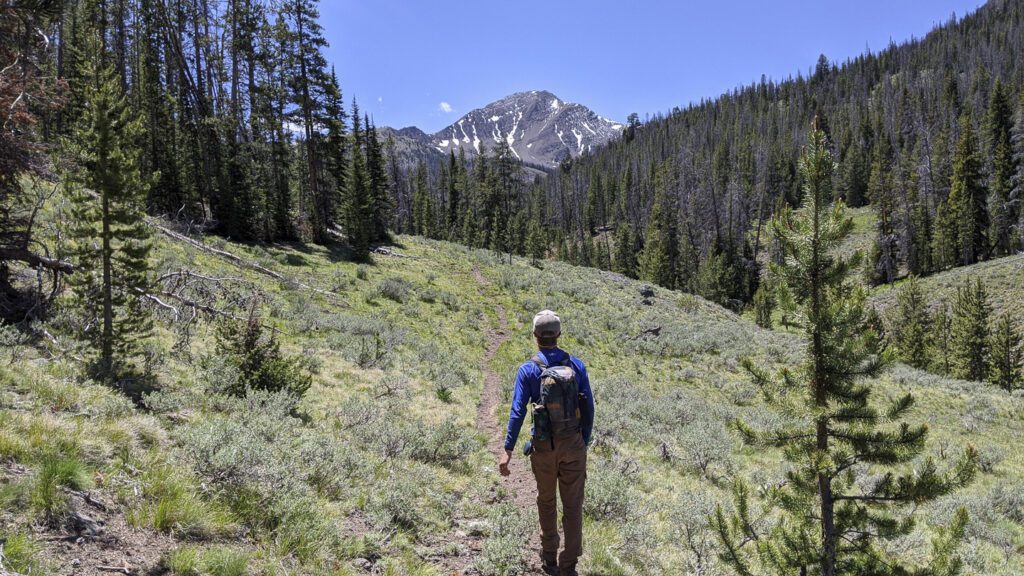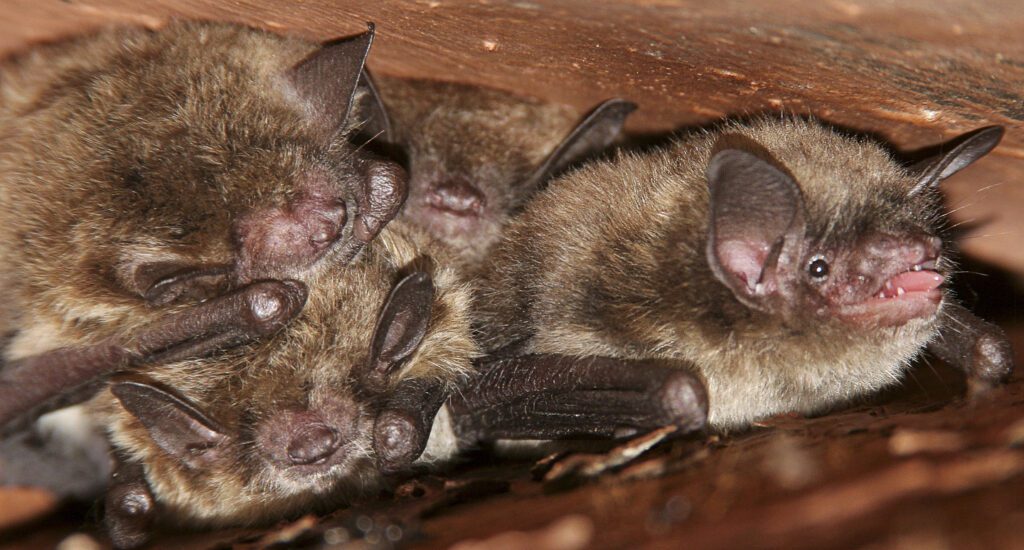Bats get a bad rap, but these adorable flying mammals have an outsized positive impact on our environment. From controlling pest populations to pollinating plants and dispersing seeds (i.e., pooping), bats are a crucial keystone species.
In North America (and beyond), many bat populations are threatened by disease, habitat loss and the effects of climate change. Student Conservation Association interns work to help monitor bat populations and provide critical research efforts, including acoustic surveys and population assessments.

An SCA crew member in the field. (Photo Credit: Student Conservation Association.)
This summer at Klamath National Forest in Yreka, California, a crew of SCA interns helped to inventory and monitor avian wildlife species such as owls, bald eagles and bats. The crew was charged with setting up remote camera stations and autonomous recording units (ARUs) to record the activity of bats and owls.
Earlier this month at Buckley Space Force Base in Aurora, Colorado, an SCA intern concluded a 17-week term with the U.S. Fish and Wildlife Service. The crew member worked alongside biologists to implement the Base’s Integrated Natural Resources Management Plan, which involved conducting ecological surveys across taxonomic groups (including bats)!

Brown bats nestle together. (Photo: Steve Byland for Dreamstime)
Does your heart take wing when you hear stories like these? Your support this month will give our crew members more opportunities to hang out with our winged friends while gaining career skills and protecting vital species! Give today or go completely batty 🦇 and become a monthly sustainer!